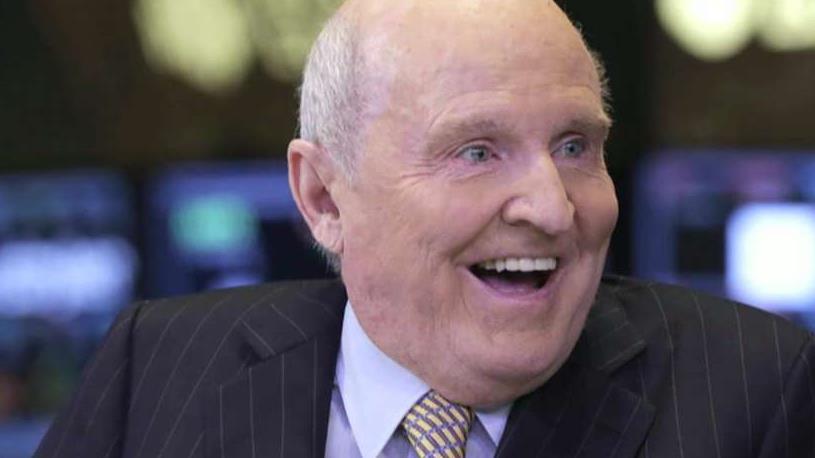Neutron Jack Welch is going nuclear over GE meltdown
Neutron Jack is having a meltdown!
As a new batch of bad news has hit General Electric (NYSE:GE) this week, the company’s former longtime chief executive and now management guru “Neutron Jack” Welch is said to be apoplectic about the mounting problems faced by the once high-flying conglomerate, according to friends and associates who spoke to FOX Business.
During his 40-year career, half of which he served as CEO, Welch built GE into one of Corporate America’s most profitable companies with a share price that surged 4,000% during his tenure. But after his retirement in 2001, he handed the company over to Jeffrey Immelt, who announced his retirement in the summer as investors began questioning his business strategy and shares tanked. This week things got even worse for GE, as the firm’s current CEO John Flannery disclosed on Tuesday that the company had found $11 billion in charges stemming from its insurance business and changes to the U.S. tax code.
Shares of GE then dropped 15% – its worst five-day decline since 2009 when the company was still reeling from the financial crisis – as Flannery announced that he might have to completely break up GE in order to save it, essentially dismantling the house that Welch built by splitting the conglomerate into three separate, publicly-traded units comprised of its energy and power business, aircraft engines and health care, while selling everything else.
All of which didn’t sit well with the 82-year-old former CEO.
“Jack is so mad that he doesn’t want to go on television to discuss what’s happened to GE because he won’t be able to control his temper,” one longtime associate of Welch’s told FOX Business.
A spokeswoman for Welch declined to comment.
As CEO of GE, Welch earned the name “Neutron Jack” for his slash-and-burn management style, where he constantly eliminated underperforming businesses and employees – the bottom 10% of executives and other workers – who failed to meet management standards. But he also grew GE into a massive conglomerate, one that veered from the company’s core manufacturing and energy operations into a diverse array of businesses such as entertainment, insurance and financial services through its GE Capital arm.
After taking over in 2001, Immelt attempted to whittle down Welch’s behemoth by selling GE’s NBC Universal subsidiary and most of GE Capital and other assets. But his critics – who include Welch – say he moved too slow realigning GE for the modern era, allowed costs to explode and moved into amorphous business concepts such as his push into something called the “industrial internet.”
Under Immelt, GE lost more than $150 billion in stock market value, and its shares have declined more than 30%. As FOX Business was first to report, Welch hasn’t spoken publicly about Immelt’s job performance, but in private, Welch places most of the blame for the company’s problems on his hand-picked successor. Welch is said to believe that Immelt did not have the chops to run the company’s core businesses, and manage other businesses that were either unprofitable or could pose financial risks, such as GE Capital.
Immelt has told people he was dealt a bad hand, having to run a company that Welch grew too much through turbulent economic conditions such as the 9-11 terrorist attacks and the 2008 financial crisis, which nearly left GE insolvent were it not for government assistance because of losses at GE Capital.
Immelt declined to comment. A GE spokesman didn’t return telephone calls for comment.
Welch has yet to express his dismay with the company and has not spoken with Flannery, according to people with knowledge of the matter. But FOX Business has also learned that former GE executives have reached out to board members to offer their assistance in figuring out a solution to the company’s problems. It’s unclear if the board will take them up on their offer, these executives say.
In fact, some of these former executives believe current management is moving too slow to contain costs and dismantle unprofitable parts of the company. They are hoping that activist investor Nelson Peltz’s Trian Partners, which has a board seat, will push to make changes faster so that GE will be able to survive in some semblance of its former structure that Welch made so profitable.
Meanwhile, Welch has remained publicly silent, and privately fuming.
“Many of the former executives including Welch can’t believe what happened here,” said one former GE executive. “He blames Immelt for mismanaging a great company. Immelt blames Jack for handing him a mess, and it’s unclear if current management knows how to fix things.”




















